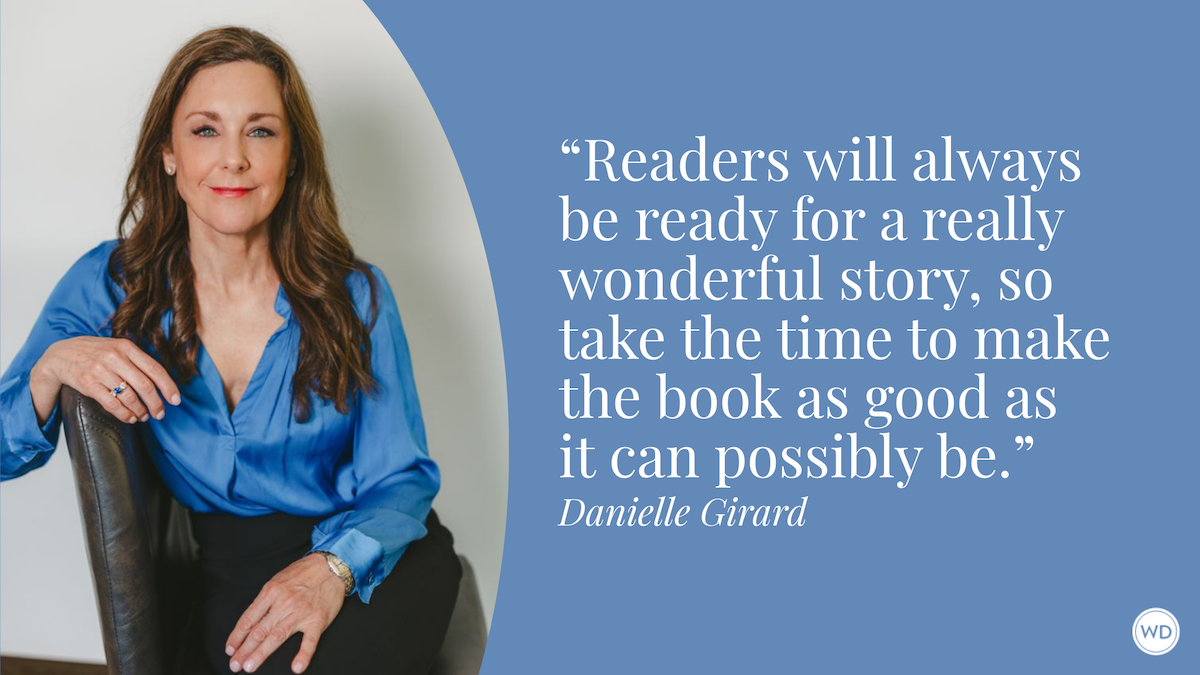Rolling the Dice: 5 Ways D&D and “Critical Role” Made Me a Better Storyteller
Fantasy writer and blogger Angela D. Mitchell offers 5 ways that Dungeons and Dragons helped her improve her writing and how to be a better storyteller.
Fantasy writer and blogger Angela D. Mitchell offers 5 ways that Dungeons and Dragons helped her improve her writing and how to be a better storyteller.
I was having one of those Februaries. You know the kind. Skies were grim and gray. I’d already broken most of my New Year’s resolutions. My life felt a little uninspired and plodding, and (worst of all) my fiction did, too. I couldn’t put my finger on what was wrong, but the spark was missing. I felt dim, boring, and stuck.
Then a friend recommended that I check out a web series called “Critical Role.” As a gaming blogger, I’d heard the name frequently over the previous year (and their record-breaking recent Kickstarter campaign had also registered on my pop culture landscape), so I figured I might as well catch an episode or two to see what all the fuss was about. At the very least, it might distract me.
When I pulled up episode one, however, I was bewildered to discover that it wasn’t a conventional fictional narrative at all. “Critical Role” was, it turned out, a show in which seven voice actors sat around a table and played Dungeons & Dragons, under the eagle eye of talented Dungeon Master (or “DM”) Matthew Mercer.
It was a disappointing revelation, because there was no way, surely, that I was gonna actually sit and watch people play D&D, right?
Cough. I was wrong. So, so wrong. Not only was I, yes, going to sit and watch people play D&D, I would do so with gratitude and humility. As the show progressed, I began to realize why millions were so passionate about tabletop roleplay, and how, at its heart, D&D is storytelling at its purest, combining world-building, action and improv. I also realized fairly quickly that to watch a compelling high fantasy chronicle shepherded by someone as literate and eloquent as Mercer, performed in the moment by a group of superb actors, it was all too easy to be pulled into the tale.
Increasingly, as the plot thickened and the stakes continued to rise, I began to look forward to experiencing Mercer’s skill as a writer and world-builder (I was so impressed that I went off and Googled within the first 10 episodes to check Mercer’s credits, certain he had to be a novelist—I still think he will be). I especially loved the little instances when Mercer would set a scene for the group, describing a new environment or inhabiting a fascinating new character, and as he did so, I found myself holding my breath right alongside the players. There was something genuinely poignant to me in those moments, despite their deceptive simplicity. Thanks to Mercer’s sophisticated vocabulary and genuine artistry, these static scenes of a guy sitting at a table, painting a picture with words for his friends, were electric with suspense and emotion. To watch the rapt faces of the players in such moments, somehow young and shining in their absolute immersion, was to experience storytelling at its simplest, purest, and most ancient.
But there were more revelations. Not only did I find myself engrossed and moved by the vivid characters, sensitive performances and compelling narrative, I began to realize that there were lessons waiting for me there—lessons I could and did begin to apply to my own fiction writing.
1. Set the Scene
Watching “Critical Role,” I realized that I had often previously been sloppy about setting the scene in my own fiction. While this didn’t mean I needed to spend a thousand words on describing a new location, it nevertheless brought home to me the opportunities such moments provided for beauty and sheer world-building. What was the weather? How did thinks look, feel, and smell? The reader needs to believe the world they’re reading about is real … Mercer’s approach reminded me that those little key details go a long way in creating immersion.
2. Take Time for Backstory
This is something I’ve always found slightly difficult and tedious, mainly because I’ve tended to use the action of my stories themselves to show us who people are. I’ve tended to subscribe to the C.S. Lewis idea that “plot is character,” that what people do is who they are. However, “Critical Role” taught me that taking a little more time to work on backstory is actually a way to create additional dramatic opportunities as the plot moves forward.
3. Bring on the Action
In “Critical Role” (and, indeed, any tabletop RPG), some of the best and most exciting moments involve the adrenalin and excitement of battle scenes. However (confession), the truth is … I’ve always been a little tentative on action scenes, especially those involving fighting, battle or warfare. I’d always been cautious about those, assuming that, since I was not an “action person” in life, that I would not be able to create convincing action scenes in my fiction.
But this was simply one of the convenient lies writers tell themselves for comfort, so it was amazing to me to discover that not only could I write battle and action scenes, but I loved doing so. It was a revelation to realize that there was a challenge, skill, and satisfaction to envisioning a visceral and cinematic fight in my mind’s eye—and to be able to convey that in words.
4. Keep Things Moving
The best and simplest dramatic fact about “Critical Role” is that the plot is relentless. The story’s like a shark, to remind of the old cliché, and it’s always moving forward.
This was the biggest and most useful takeaway for me, because it helped me to identify and fix the precise problem that had been plaguing my fiction when I sought out the show. Subtly and consistently, and without realizing it at the time, I’d begun committing the crime of story stagnation; I’d begun writing scenes purely for the sake of writing. I’d forgotten the gift of time jumps, of cutting out the nonessentials, and had begun to lazily tell my story in a “first this, then this, then this” kind of approach. Compounding this mistake, I’d also begun writing extended dialogues within scenes just because, well, I write pretty good dialogue, and they were fun to write. The problem was, those conversations added nothing but bloat and stagnation to my actual story.
5. Let Your Characters Surprise You
The last writing inspiration I took away from “Critical Role” was a technical appreciation for the fact that, because Mercer was constantly navigating a storytelling environment in which characters might do or say a dozen different things that surprised him or radically changed their circumstances, he had to be ready for anything.
While this was a more predictable side effect of Mercer as storyteller managing seven disparate and live-improvised characters in the moment, I found it valuable for myself as well, even in stories in which characters and plot alike were all under my own control.
Too often, in that February of my writing discontent, I realized looking back that I’d been so focused on where I wanted to take my storyline, I’d sometimes forced characters instead of listening to what they’d actually wanted to do or say. Sometimes, the best moments in fiction are when we allow those characters to speak and act—even if they destroy a little bit of scenery (and planning) in the process. “Critical Role” reminded me to return to this, to write my fiction while allowing that characters could take over and surprise me at any time.
The Lessons of D&D
I love being a writer. I love the knowledge that in telling stories, I’m doing something ancient and magical, carrying on a tradition that has fascinated and moved human beings since those long-ago times when stories were spoken aloud in the flicker of firelight upon cave walls. So it’s been really humbling and exciting for me that an online D&D game not only reconnected me to an appreciation for storytelling at its simplest and most primal, but that it also had something to teach me about becoming a better and more effective storyteller myself.
As writers, we all want to tell the best stories we can, but it’s always a delicate balance between control and chaos. Sometimes, the best thing we can do to maintain the spark and excitement is to relinquish control … and roll the dice.
Have an amazing story idea, but need to learn the basics of how to write a book? WD University's Fundamentals of Fiction will take you through all of the basics of writing a novel including how important it is to choose a great setting, how to build characters, what point of view you should choose, how to write great dialogue, and more. Register today!
About Angela Mitchell
Angela D. Mitchell is a fantasy writer, gaming blogger and pop culture critic whose work has appeared in Writer’s Digest, About.com, The Fandomentals, Markee, Computer Currents, and many more. Follow her on Twitter at @DrunkDalish.








